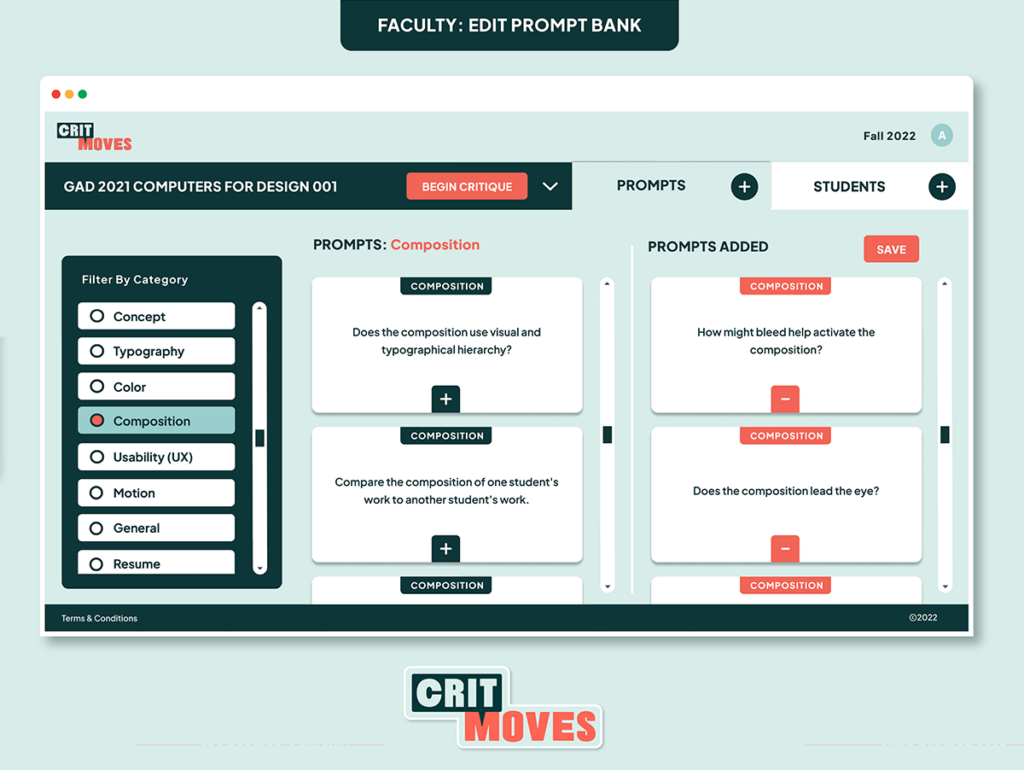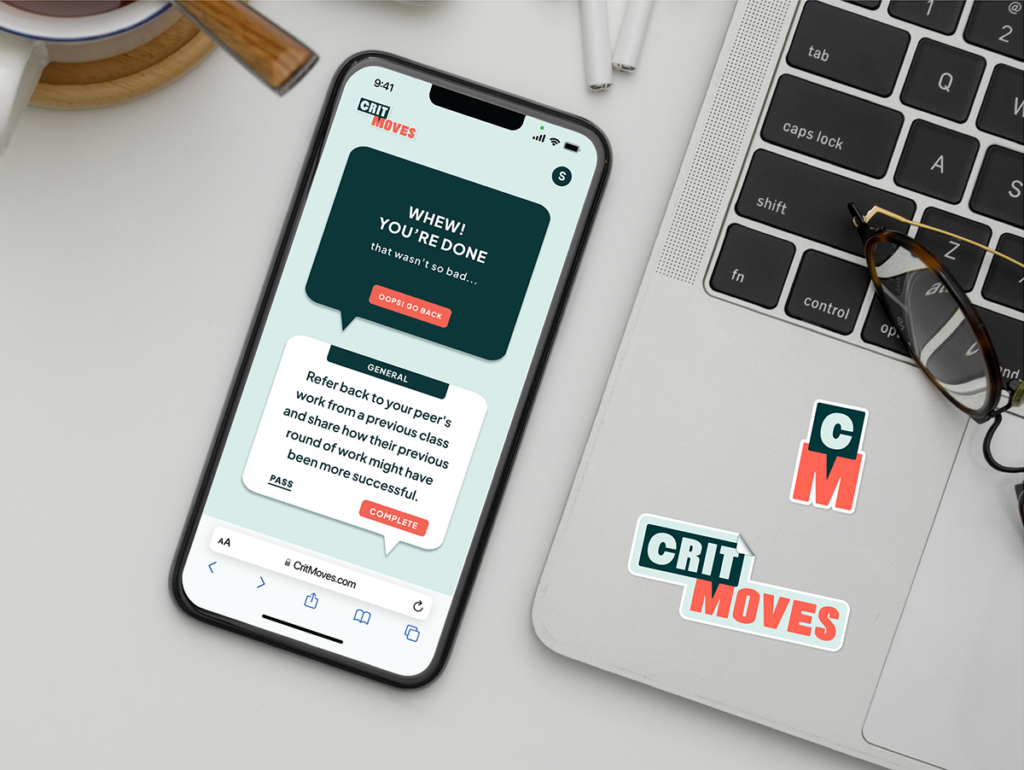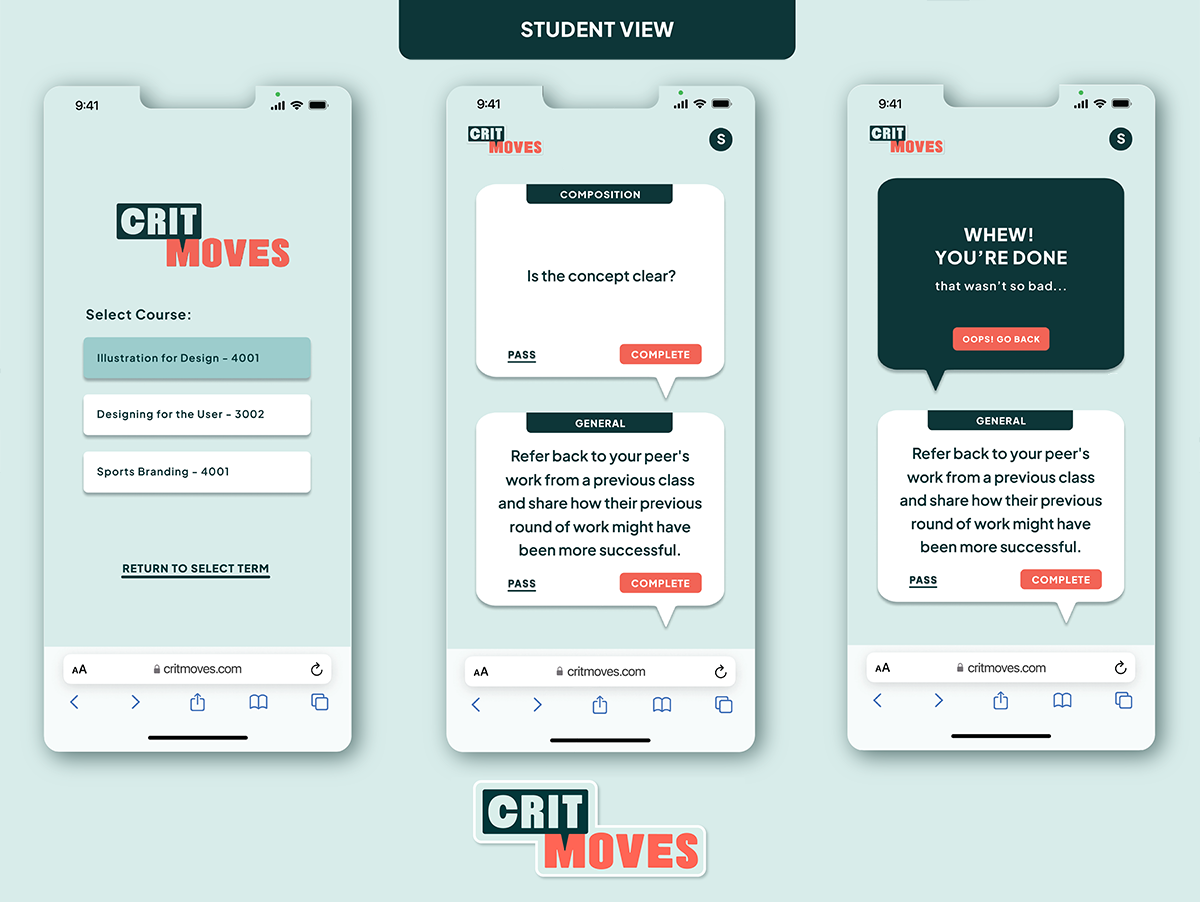Jenny Kowalski
Assistant Professor
Lehigh University
Abby Guido
Associate Professor
Temple University
Peer critique is a tool for formative and summative assessment in art and design classrooms (Motley, 2016). Although some forms of critiques are dominated by the instructor (Barrett, 2000), a framework encouraging peer discussion establishes a collaborative environment and fosters meta-cognitive skills (Topping, 1998).

Two graphic design professors are proposing a tool called CritMoves to enhance participation in classroom critiques. Based on the concept of conversational moves (Nichols, 2019), CritMoves would allow faculty to create a set of specific prompts that would be randomly assigned to students via student cell phones. Students could “execute” prompts during the critique, gamifying the critique experience and encouraging peer communication.
Prompts such as “agree with what was just said and add additional feedback” or “disagree with what was just said and share an opposing view” encourage students to engage in a full discussion. Other prompts such as “discuss the color contrast in this piece” direct students to focus on specific details that can be connected to pedagogical goals. Our intention is that the structure of the curated prompts will lead to more positive feelings towards peer critique and a greater sense of belonging in the classroom.
This presentation will discuss the early stages of this research and the development of a prototype through an interdisciplinary collaboration of students in Computer Science and Graphic and Interactive Design programs. We are interested in engaging in a conversation about how best to utilize technology to foster human interaction and connection in art and design classrooms.

This design research is presented at Design Incubation Colloquium 10.2: Annual CAA Conference 2024 (Hybrid) on Thursday, February 15, 2024.
